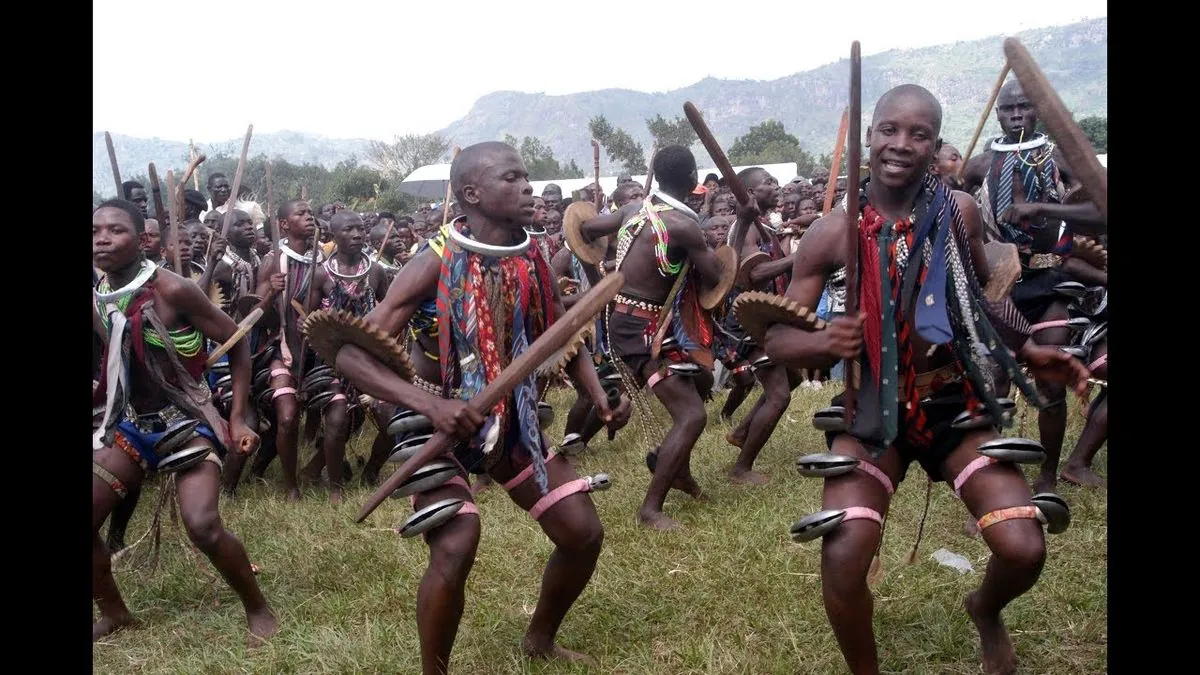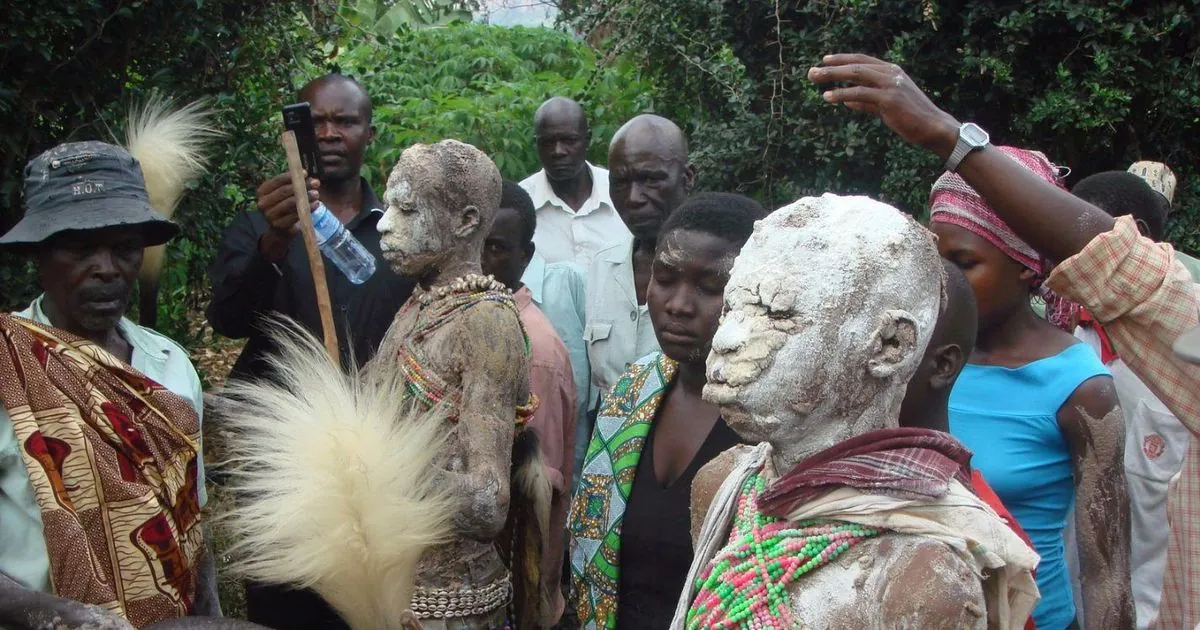Ugandan Imbalu Ritual Faces Modernization Challenges
The traditional Imbalu circumcision ceremony of Uganda's Bamasaaba people confronts tensions between preserving cultural authenticity and embracing modernization. Government involvement and tourism interests spark debate among community members.

In the shadow of Mount Elgon, Uganda's Bamasaaba people are grappling with the evolving nature of their sacred Imbalu ritual. This biennial mass circumcision ceremony, a cornerstone of Bamasaaba culture, is facing unprecedented challenges as it navigates the delicate balance between tradition and modernization.
The Imbalu ritual, scheduled to commence on August 3, 2024, has become a focal point of controversy. The current Umukuuka (king), Jude Mudoma, advocates for a more public presentation of the ceremony, aiming to attract tourists and align with Uganda's national development goals. This approach has received substantial financial backing from the government and corporate sponsors, totaling over $120,000.
However, this modernization effort has met resistance from community elders and clan leaders. Wasukira Mashate, a custodian of Bamasaaba cultural property, expressed concern about the ritual's authenticity being compromised. He stated, "Our leadership is being hijacked by national political leaders," highlighting the growing tension between traditional authority and external influences.
The dispute reached a critical point during the ceremonial inauguration when clan members objected to the choice of sacrificial animal. The mixed-breed bull provided by the Umukuuka was deemed inappropriate, with traditionalists insisting on a local breed to appease the gods. This disagreement led to delays and heightened tensions at the event.

Despite the controversies, the cultural significance of Imbalu remains paramount for the Bamasaaba. The ritual, believed to have originated with their ancestor Masaba, is more than just a circumcision ceremony. It serves as a comprehensive rite of passage, incorporating teachings about adult responsibilities and reinforcing community bonds.
"We cannot bury you in the land of the Bamasaaba without (being circumcised). No, no, no. It is in the constitution of the culture of the Bamasaaba. ... It is a curse if you bury into the land people who are not circumcised."
The Bamasaaba, primarily agriculturalists known for their coffee and banana cultivation, view Imbalu as an integral part of their identity. The ceremony involves traditional dances, songs, and feasts, attracting attention from anthropologists and cultural researchers.
As the mass circumcisions continue until the end of 2024, the Bamasaaba community faces the challenge of preserving their cultural heritage while adapting to modern pressures. The ongoing debate reflects broader issues of cultural preservation in the face of globalization and economic development.
The future of Imbalu hangs in the balance, as the Bamasaaba people strive to find a middle ground between honoring their ancestral traditions and embracing the opportunities of the modern world. This delicate negotiation will likely shape the cultural landscape of this unique Ugandan community for generations to come.


































